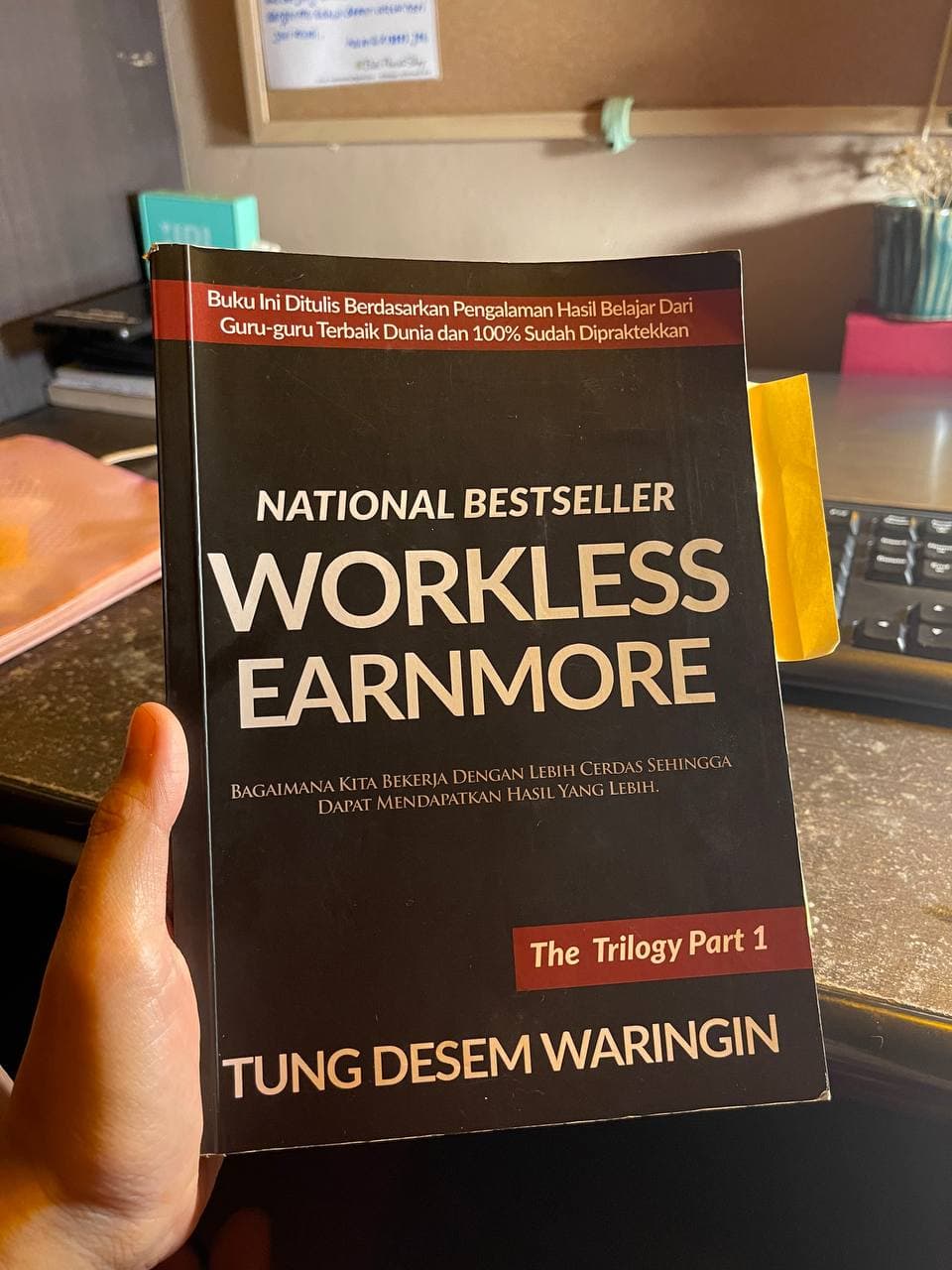5 Lessons from 5 Years of Working
I graduated from university in June 2016 with a bachelor’s degree in Economics. I found it challenging to find a job at that time, especially because I didn’t have any specific goals. My only purpose was to find a job after I graduate, regardless of what it was. I applied to become a banker, a financier, general accounting, anything that was related to my studies.
Eventually, my friend asked me if I wanted to work in a hotel as a Accounting Receivable and Income Audit. YES, for sure I want it. I was a little anxious because I hadn’t learned about the hospitality sector whilst in university; I learned about private companies, services, trade, and manufacturing, instead. I also couldn’t speak English well. As you know, if you want to work in a customer-facing industry like hospitality, you should be good at communicating in English. Fortunately, those things didn’t stop me, and I successfully got that job in July 2016.
Time flies fast. It has now been 5 years since my first day of employment. I would like to summarise some of the things I’ve been through and what I have learned from my experiences. Hopefully these lessons can help you.

Be Persistent
My first day at work was so challenging. My co-workers weren’t very nice to me, and talked about me behind my back because I was slow to understand my task list. The Chief Accountant (CA) wasn’t helpful either, she just asked me how I was doing and didn’t assist me nor give me advice when I told her I was struggling. For the first three days after work, I cried at night because I felt overwhelmed and burdened. I almost gave up and decided to send my resignation letter. Eventually, I steeled myself and thought “I shouldn’t quit. I have to conquer this challenge.”
When my boss told the CA about my low performance, he gave me one week to understand my job and handle it alone. If I couldn’t, then I would have to quit. What did I do to pass the challenge? I learned how to make a Daily Sales Report, and stayed at work until midnight to try to understand the accounting system. A security officer even came to my office to tell me I needed to go home!
I knew that my co-workers were only showing a façade of friendliness towards me, but I didn’t let it stop me and I didn’t take it personally. I remember that multiple of those same co-workers later went on to resign together because of some reason or another, and they were pushing me to join their action. Once again, I thought about my future and decided that I still needed to gain more experience, so I chose to stay and survive.
Have A Willingness to Learn New Things
What is the best investment in life? Investing in yourself.
When I know I couldn’t speak English very well, I chose to use my whole month’s salary to enroll on an English Class at the English First (EF) organisation for six months. I made significant improvement and by the end of the course I was able to speak English at an Intermediate level.
In 2018 my boss offered me to join the Tax Brevet A/B class for IDR 5.000.000 ($350). I was so excited and took the chance.
Even when the pandemic began, and my salary was reduced from having to Work from Home, I chose to study using online courses from Udemy to improve my skills with Microsoft Excel and creating financial reports. I also enrolled to learn the fundamentals of Digital Marketing from a course on Google Digital Garage, and even start to learn coding on Codecademy so that I could start my own website with some help from my boyfriend. My Udemy and Codecademy courses are still ongoing.
Develop A Tough Mentality
Before you step up at your own work place, make sure you have good mental health and are strong enough to face the unexpected things. Earning money is not as easy as spending it. There are a lot of factors that affect your performance at work, such as the pressure from your boss, your co-workers badmouthing you, having a messy desk, your lunch time, and so on. It is easy for us to get stressed from our workplace, which is why we need to manage our mentality.
When you get scolded by your boss, you need to have the kind of thought to realise that ‘This is a normal thing, I made a mistake and that is why my boss scolded me. My boss wants the best from me’. Try to think from your boss’ perspective; he or she didn’t scold you because they hate you, but because they expect more from you.
It’s hard when your co-workers say bad things about you; it’s natural to feel sad and perhaps even be ashamed to face them. But remind yourself: what is your reason to have a job? You still have debt, you still want to be able to make investments, to take your family abroad, or whatever your motivation is. Try to not listen to the naysayers, and keep moving forward. Prove to them that you have the ability to achieve and impress. There is no point giving them the silent treatment. Just work as professionally, as if nothing happened.
I remember a story about The Tiny Frog: There are a group of tiny frogs that arranged a competition to reach the top of a tower. A large number of frogs gathered to watch the competition and see if any of the frogs can accomplish it. When the race began, no-one in the audience believed that it could be done. Some shout to the tiny frogs “It’s way too difficult”, others follow: “They will NEVER make it to the top” and “Not a chance. The tower is too high.”
The participant frogs one by one fell from the middle of the tower, except for those who kept trying to jump step by step to climb higher. More and more tiny frogs became tired and gave up. The crowd kept shouting that they wouldn’t make it. There was only one tiny frog that still continued to jump and refused to fail. He put in all of his effort. Finally, this tiny frog reached the top of the tower and won the competition.
All the participants frogs wanted to know how he was able to succeed in reaching the top of the tower. It’s because the tiny frog was DEAF. He didn’t listen to the audience, so wasn’t deterred, and still believed it was possible. He thought the audience was cheering for him!
Responsibility and Added Value
Every position has it’s responsibilities. As an accountant, my work is full of responsibilities that must be completed perfectly. My position covers essential things such as financial information, bank accounts, etc, and the company could enter legal and financial troubles if I completed my responsibilities incorrectly. But the workplace isn’t just about responsibilities; all accountants can create a financial report or manage a bank account; what value do you add to the company that wouldn’t be added by someone else? It is important to find something that means your company can’t easily replace you with someone new.
I got my answer from Pak Tung Desem Waringin book’s WorkLess EarnMore (Part 1). He wrote that if we want to be able to add value and become different to other people, we need to take more responsibilities, extra work, and be the best at your own position. It is important to make your boss and the upper management recognize the quality of your work and your importance. There are three steps to be the best:
- we consciously determine that we want to be the best
- have a strong reason to be the best, for the people we love
- learn from the best

Honest and Trust
If you are a dishonest person, you likely won’t have a career for long. An absolute condition to have long and successful career is that you have to be able to be trusted. As an accountant, it is very risky when we work with money. It is easy to manipulate cash. It’s necessary to write down and attach every document when we do the cash in and cash out transactions for the company. Once, I had an experience where I had to choose between my integrity and my boss’s order. For a few months, I followed my boss, because I needed him to trust me, but it went against my integrity as an accountant. I thought that if I kept doing what I was doing, it will impact to other parties and bad scenarios can arise. So, I chose to approach someone that can help me face this issue. Finally, we managed to solved the problem.
There are some ways to prove that you are an honest person:
- Keep your words and commitments.
For example, if you say “I will finish the report by Monday next week.”, then no matter what happens, you have to finish it by that time. If you couldn’t because something significant has happen, it is important to inform the relevant parties immediately. Show your manner and that you have good intentions to stick to your responsibilities.
- Stay focused.
It’s so easily to get distraction by just a single notification from your phone. It’s important to stay focused on the job until you achieve the results you want.
- Take responsibility.
When you inevitably make a mistake, don’t be afraid to admit to it and take your action to fix your mistake. It is hard to say something like “I’m sorry I made a mistake”, or “I do apologize that I got it wrong”, but it’s important to do it. Then, don’t make the same mistake twice, because it will show that you aren’t capable to learn your lessons. Show that you learn from your experiences.
Those were five lessons that I learned from five years in a working environment, but I will continue learning lessons and gaining more experience.
According to the law of 10.000 hours, to become an expert, one needs to do the activity that he/she is engaged in for 10 thousand hours. Evaluate your work, learn from other people and don’t be high and mighty just because you think you’re smart enough to accomplish something. Stay humble and keep improving yourself.

